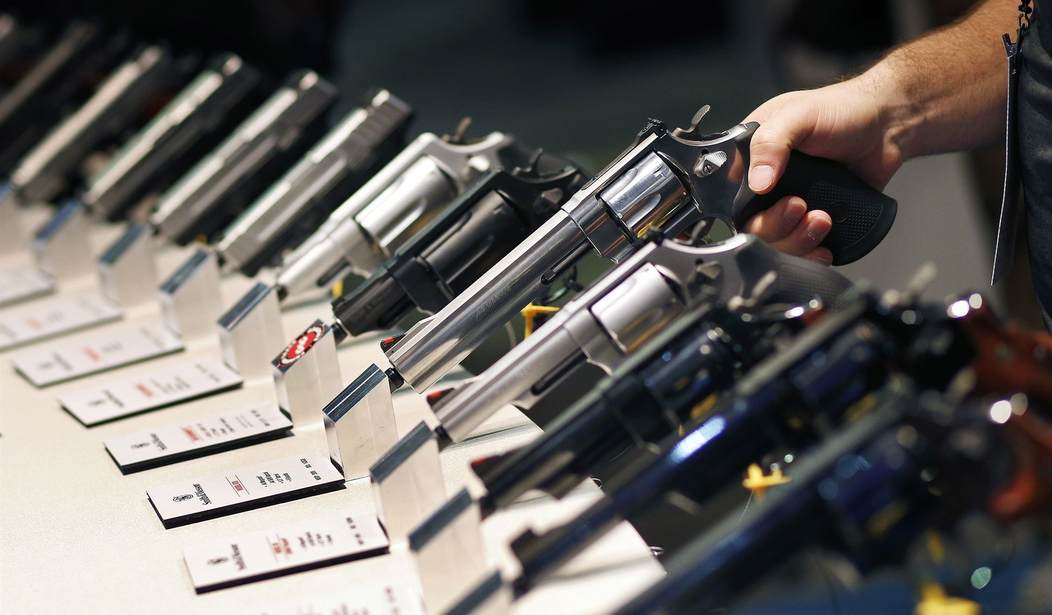AP Photo/John Locher, File
There’s a lot to dislike about red flag laws.
Oh, relatively few take issue with the idea of taking guns away temporarily from people who may be dangerous. The problem is that the bar for taking away someone’s guns–depriving them of property without due process–is so ridiculously low.
John Lott wrote at the Washington Times earlier this week about some of the problems with these laws.
Weld County Sheriff Steve Reams in Colorado made news Monday over his willingness to go to jail over his refusal to enforce what will soon be the state’s new “Red Flag” law.
Given the news media plays these laws, also known as Extreme Risk Protection Orders, as being so sensible, Sheriff Reams looks like a kooky right-winger. After all, who could be against taking away guns from people who are a danger to themselves or others?
But the laws are more complicated than usually discussed in the press. Depending upon the state, anyone from a family member, intimate partner, ex, house or apartment mates, or police can file a complaint. Under Colorado’s proposed law, anyone can make a phone call to the police. They don’t even have to be living in the state. There is no hearing. All the judge has before them is the statement of concern.
As in the Tom Cruise movie, “Minority Report,” all you have to do is figure out who is going to commit the crime. At least the “PreCrime” division in the movie had the help of psychics.
…
It has always been possible to take away someone’s guns, but all 50 states have required testimony by a mental health expert before a judge. Hearings could be conducted very quickly in urgent cases, But gun control advocates argue that it’s important to not even alert the person that his guns may be taken away. Hence, the 5 a.m. police raids.
When people really pose a clear danger to themselves or others, they should be confined to a mental health facility. Simply denying them the right to legally buy a gun isn’t a serious remedy. If you think that you are any more likely to stop criminals from getting guns than illegal drugs, good luck. The same drug dealers sell both and are a major source of guns. And there are other weapons such as cars.
As per usual, I agree with Lott.
If people are a threat, they’re a threat. Treat them accordingly. The process already exists. While I have issues with those laws and how they’re applied, they already are on the books.
While anti-gunners are desperately trying to get these bills passed in every state, the issue remains that these are little more than legalized swatting. How long until people start using these explicitly to punish individuals?
Well, there may already be cases of that.
Lott writes:
In the first nine months after Florida passed its Red Flag law last year, judges granted more than 1,000 confiscation orders. In the three months after Maryland’s law went into effect on Oct. 1, more than 300 people had their guns taken away. In one case in Anne Arundel County, a 61-year-old man died when the police stormed his home at 5 a.m. to take away his guns. Connecticut and Indiana have had these laws in effect for the longest time and have seen large increases in confiscation orders as time has gone by.
There are some unconfirmed reports that the man killed was served with an extreme risk protective order because a family member disagreed with him politically. Those stories are unconfirmed in part because Maryland law essentially seals the records to protect the identity of those making the reports.
In other words, it makes it possible to swat someone and then the law protects the swatter.
Absolutely ridiculous.
Yet, those laws will continue to be pushed until or unless we can stop them dead in their tracks.






Join the conversation as a VIP Member